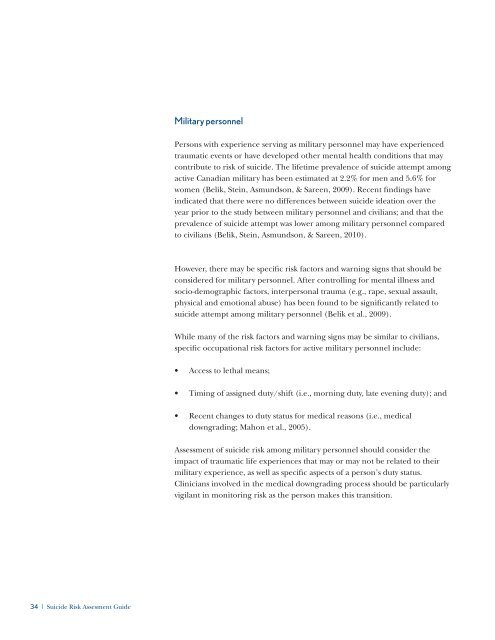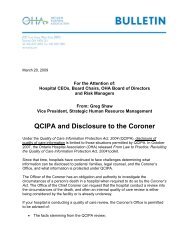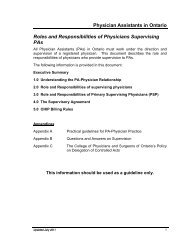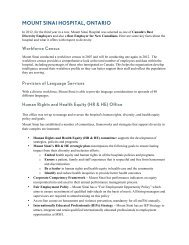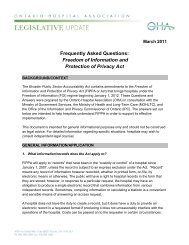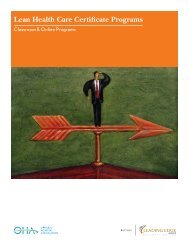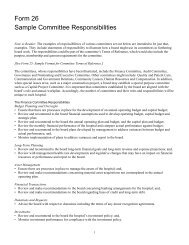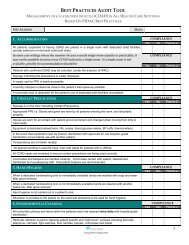Suicide Risk Assessment Guide - Ontario Hospital Association
Suicide Risk Assessment Guide - Ontario Hospital Association
Suicide Risk Assessment Guide - Ontario Hospital Association
Create successful ePaper yourself
Turn your PDF publications into a flip-book with our unique Google optimized e-Paper software.
34 I <strong>Suicide</strong> <strong>Risk</strong> Assesment <strong>Guide</strong><br />
Military personnel<br />
Persons with experience serving as military personnel may have experienced<br />
traumatic events or have developed other mental health conditions that may<br />
contribute to risk of suicide. The lifetime prevalence of suicide attempt among<br />
active Canadian military has been estimated at 2.2% for men and 5.6% for<br />
women (Belik, Stein, Asmundson, & Sareen, 2009). Recent findings have<br />
indicated that there were no differences between suicide ideation over the<br />
year prior to the study between military personnel and civilians; and that the<br />
prevalence of suicide attempt was lower among military personnel compared<br />
to civilians (Belik, Stein, Asmundson, & Sareen, 2010).<br />
However, there may be specific risk factors and warning signs that should be<br />
considered for military personnel. After controlling for mental illness and<br />
socio-demographic factors, interpersonal trauma (e.g., rape, sexual assault,<br />
physical and emotional abuse) has been found to be significantly related to<br />
suicide attempt among military personnel (Belik et al., 2009).<br />
While many of the risk factors and warning signs may be similar to civilians,<br />
specific occupational risk factors for active military personnel include:<br />
• Access to lethal means;<br />
• Timing of assigned duty/shift (i.e., morning duty, late evening duty); and<br />
• Recent changes to duty status for medical reasons (i.e., medical<br />
downgrading; Mahon et al., 2005).<br />
<strong>Assessment</strong> of suicide risk among military personnel should consider the<br />
impact of traumatic life experiences that may or may not be related to their<br />
military experience, as well as specific aspects of a person’s duty status.<br />
Clinicians involved in the medical downgrading process should be particularly<br />
vigilant in monitoring risk as the person makes this transition.


